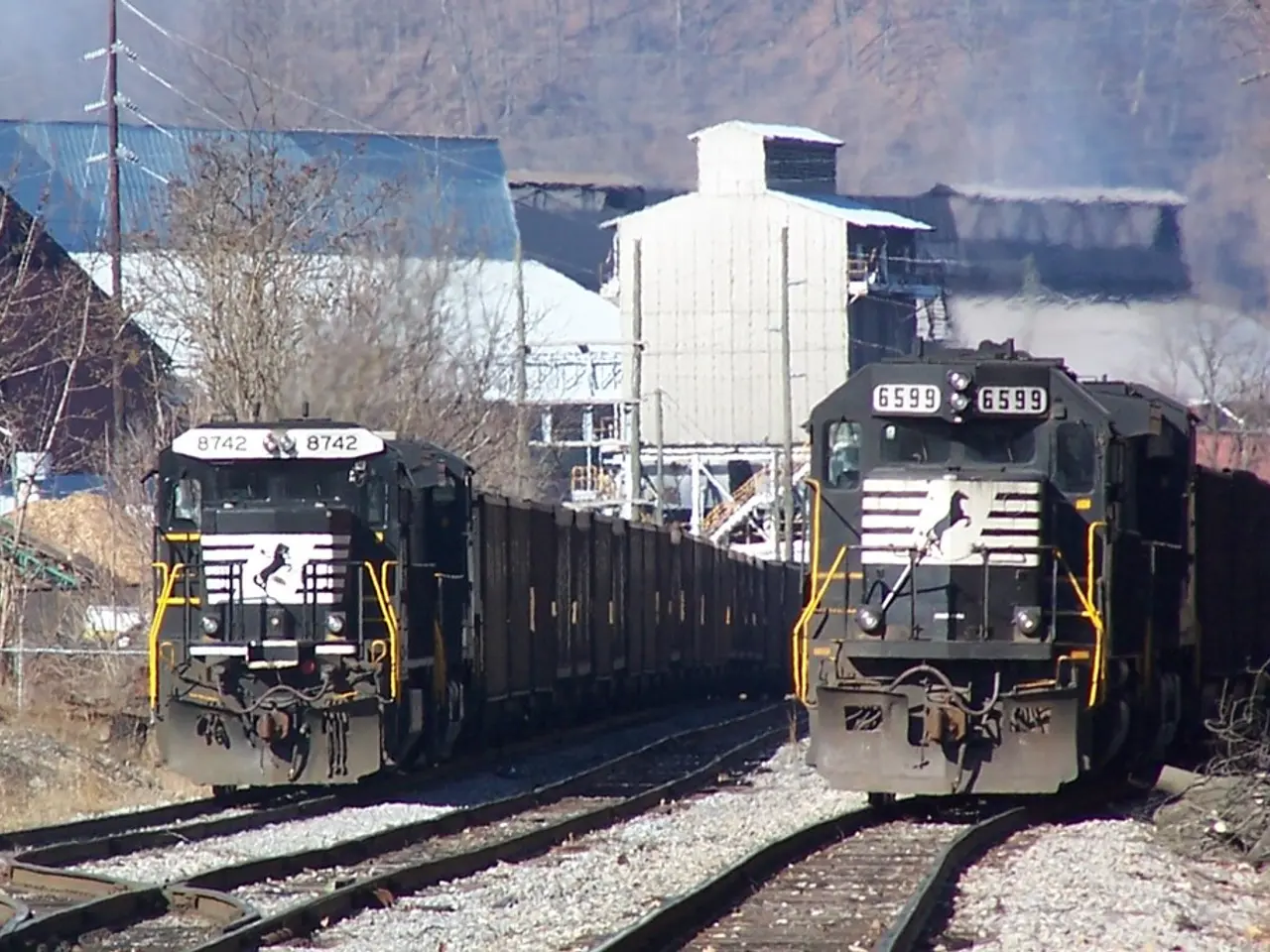Giant rail conglomerates Union Pacific and Norfolk Southern agree on a monumental $85 billion merger
The railroad industry is set for a significant transformation with the $85 billion merger of Union Pacific and Norfolk Southern. This deal, if approved, will create the first U.S. transcontinental railroad, promising a coast-to-coast network spanning over 50,000 route miles [1][4].
The merged company, to be headquartered in Omaha, Nebraska, aims to deliver faster, more comprehensive freight service to U.S. shippers. By eliminating interchange delays, opening new routes, expanding intermodal services, and reducing distance and transit time on key rail corridors, the combined railroad expects to reduce transit times by 24 to 48 hours for about 1 million shipments annually [2].
The merger also promises to revitalize U.S. manufacturing and economic growth through improved logistics and expanded market access, particularly along critical corridors like the Mississippi River watershed [1][2]. It is expected to generate $2.75 billion in annual synergies within three years [2].
However, the merger faces challenges. Industry labor leaders warn that merging two large rail carriers could exacerbate service problems rather than improve them [3]. Union Pacific currently has a poor safety record, with higher rates of accidents and injuries, raising concerns about how the combined company will address safety and operational culture [3].
The deal is subject to Surface Transportation Board (STB) review and approval within its statutory timeline, customary closing conditions, and shareholder approval. Notably, the STB recently rejected a voting trust in Canadian National's attempt to acquire Kansas City Southern under its tougher 2001 merger review rules [5].
Union Pacific will acquire Norfolk Southern in a stock and cash transaction, valuing Norfolk Southern at $320 per share, a 25% premium. The combined company, with a combined enterprise value of over $250 billion, is targeting closing the transaction by early 2027 [6].
The Georgia Ports Authority is following the merger situation closely, with operations at the port remaining business as usual. Norfolk Southern and CSX serve the Port of Savannah, the fourth-busiest U.S. container port, which loads 42 intermodal trains per week [7]. No comment has been given by eastern carrier CSX or reported possible merger partner, Fort Worth-based BNSF.
In the long-term, the combined company's headquarters will be in Omaha, Nebraska, with the NS headquarters in Atlanta remaining a core location over the long-term, with a focus on technology, operations, and innovation [4].
References:
[1] Intermodal Association of North America (IANA) statement. (n.d.). Retrieved from https://www.iana.org/
[2] Union Pacific and Norfolk Southern announce $85 billion deal to create the first U.S. transcontinental railroad. (2022, March 21). Retrieved from https://www.up.com/
[3] Labor leaders express concerns about UP-NS merger. (2022, March 24). Retrieved from https://www.railwayage.com/
[4] Norfolk Southern and Union Pacific to merge, creating the first U.S. transcontinental railroad. (2022, March 21). Retrieved from https://www.freightwaves.com/
[5] STB rejects voting trust in Canadian National's attempt to acquire Kansas City Southern. (2022, March 23). Retrieved from https://www.freightwaves.com/
[6] Union Pacific-Norfolk Southern merger: What to know about the historic deal. (2022, March 24). Retrieved from https://www.cnbc.com/
[7] Norfolk Southern and CSX serve Port of Savannah. (2022, March 25). Retrieved from https://www.savannahnow.com/
- The merged railroad, aiming to improve logistics and access, anticipates its coast-to-coast network will benefit sports teams participating in interregional competitions by decreasing transit times for supplies and equipment.
- On the other hand, concerns about the merger's impact on safety and operational culture could potentially impact not just the supply chain, but also the sports arena, if these issues lead to service disruptions or delays.






